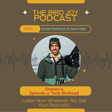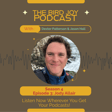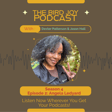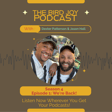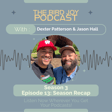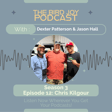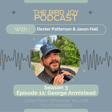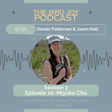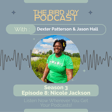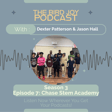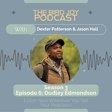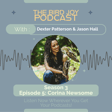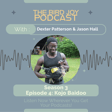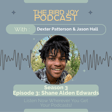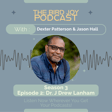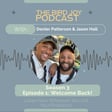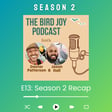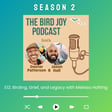
Mapping Nature’s Stories with Calvin Feagans
Dexter and Jason welcome Calvin Feagans, an environmental scientist, educator, and talented nature photographer, to the Bird Joy Podcast this week! Calvin shares how his passion for urban ecology and biodiversity drives his creative work, from the educational EnviroBytes to urban ecology report cards. He also discusses the challenges and joys of turning data into storytelling tools, mapping bird migration patterns, and reclaiming old industrial spaces for conservation efforts.
Throughout the conversation, the homies touch on themes like environmental stewardship, advocating for nature in urban spaces, and navigating the highs and lows of social media advocacy (including a few words on those inevitable trolls). They even reflect nostalgically (and humorously) on their shared love-hate relationship with R programming!
Get ready for an inspiring, educational, and joy-filled conversation that will leave you seeing urban green spaces—and the role you can play in preserving them—in a new light.
Be sure to follow our podcast on Instagram at @thebirdjoypod and subscribe wherever you get your podcasts.

